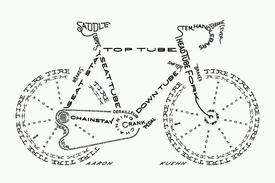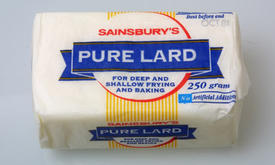Repair patches: self stick or glue?

Yogi_Carl
Posts: 1,906 Member
When self sticking patches (leeches, scabs etc) came out I thought it was going to be great - just pull out a leech, stick it on, pump it up and off you go again.
However, I have had very little success with these things and find the ones you need glue for to still be superior. Some self stick ones are so thick you can't get them on the tube and then back in the tyre to re-inflate on road skinnies.
I am in the UK. What do other folks use and what success with self stick types please?
However, I have had very little success with these things and find the ones you need glue for to still be superior. Some self stick ones are so thick you can't get them on the tube and then back in the tyre to re-inflate on road skinnies.
I am in the UK. What do other folks use and what success with self stick types please?
0
Replies
-
Glue on, always. I have never had the other kind work for me.0
-
Used sticky patched for ages, but kept replacing tubes after they blew out again. Thought it was my technique or something.
Anyway, have used glue through the winter now instead and haven't had an issue with patches blowing out. I prefer to carry two spare tubes in my back pocket. I have a mini pump and have recently bought a CO2 pump to stop me from limping to the nearest petrol station with 50p on a half flat tyre.
Haven't used the CO2 pump in anger yet. Fingers crossed :bigsmile:0 -
self stick on ones while on the road, then when get home replace tube for repaired one, take of self adhesive patch and put old style path and glue on, there are some smaller patches which are road suitable. of corse if we all fitted more puncture protection tyres we'd all eb in teh same boat with the extra weight and harder effort to run teh tyres, best of all we would get hardly any punctures !, i had up to five each ride previously, now i run schwarbe marathon plus 25mm tyres and feel much better about it, even the durano plus tyres are good.0
-
Haven't had to perform a roadside patch in years. I carry an extra tube and simply replace the tube. I fix the old tube at my leisure in the comfort of my shop. I've used both glue and scabs. Haven't had a problem with either. More comfortable with glue just because, after 50 years, I'm pretty comfortable with it (and I stopped sniffing the glue, really...)0
-
I had a pack of the self-stick patches that I've used (like many others above) as a spot patch on a ride. Found that if left in a sunny spot, they leak! Patched a tire and came out from work twice in 1 week to find previously patched tire flat, no other spots, not other issues, technique fair to good, just sitting in the sun for >8 hours lossened the glue and allowed air to leak. Big rides I now carry a spare tube, when commuting I carry a cell phone :bigsmile: When I do patch though, I go for the glue, just seems to work better.0
-
on the road bike, frankly, I carry a spare inner tube or two, swap out and carry on riding - I carry a pack of the park patches just in case I use all the spare tubes (I hit a pothole which snakebit punctured both wheels in one go, one ride!)
But, TBH, with the skinny high pressure tubes, they never patch properly, leak enough that they won't hold 110psi for more than a couple of days at a time, and at a couple of quid a tube it's just not worth the faffing about...0 -
Thanks for replies, all pretty much where I was going with it - carry two spares and glue patches for permanent repairs.
Interesting katozdad about pumps - that's my other problem. I find if I keep pumping up my road tyre there comes a time where the pump is blowing out as the pressure in the tyre becomes too high for the pump to cope with the pressure so the best I get is around 40psi when my tyres take 116psi. Is there a pump out there that can cope with high pressure tubes?0 -
I've a old(ish) mini pump that's good for the intial "bedding the tyre into place", but it also takes the CO2 cartridges, so, you put maybe 25psi in with the pump - check the tyre beads are in place, no bulges etc, and the tyre is on straight - then hit it with a CO2 cartridge and WHOOSH instant 115psi
not sure if mine's still for sale, but a similar one was reviewed in Cycling Plus this month -
http://www.i-ride.co.uk/Infinite-Mini-Co2-pump.aspx
edit: this appears to be the new version of mine...
http://www.amazon.co.uk/Genuine-Innovations-Second-Wind-Road/dp/B0017O22MM0 -
I carry a spare tube, and a small pack of glue & patches just in case one tube isn't enough. Never had to use the patches for me though as I rarely flat. Just lucky I guess.0
-
Patches have never seemed to last for me (either type). I may just be bad a patching. At this point I carry an extra tube. I think carrying patches for those times when I possibly need two tubes might be a wise addition since they are small.0
-
Spare tubes are deffo the way to go; patch tubes in the comfort of your own home when you get back with 'proper patches, glue, french chalk etc. then
 0
0 -
Definitely a spare tube whilst on a run is the way to go. Recently the price of the tubes I use is nearly the same price as the puncture repair kit I bought last year. I use glue as well, probably because I am used to using them.0
-
Carry 2 spare tubes in a saddle bag, and throw the burst one onto a pile of other tubes waiting to be repaired.
The pile of tubes occasionally gets moved to the bin.
Just make sure you clear the puncture causer from the tyre.0 -
Just make sure you clear the puncture causer from the tyre.
Hit some thorns once that hid in my tire. Kept fixing flat after flat (I was touring and away from home). Finally got to a town, ordered a new tire and several tubes and waited several days for them to arrive. Critical to clear the cause if you can.0
This discussion has been closed.










